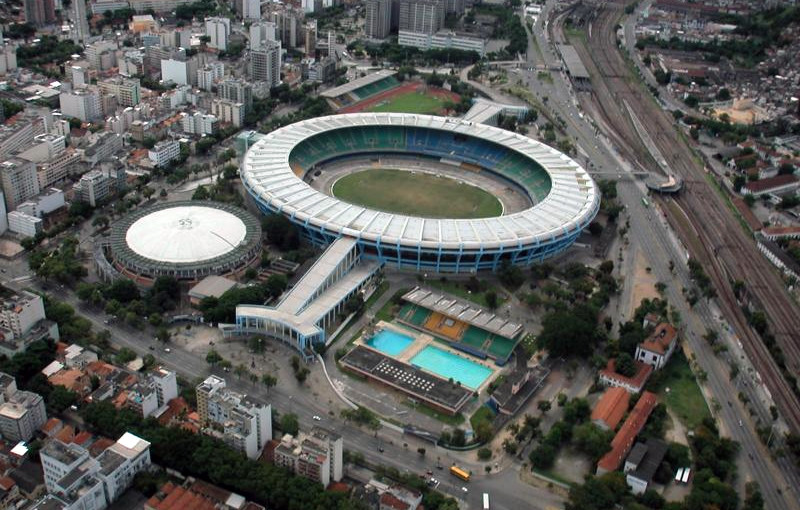By Mark Baber
May 14 – A Rio court has stayed the execution of an injunction preventing the controversial handover of the Maracana stadium to a private consortium.
During the recent reopening of the stadium, there were public protests against the privatisation of the stadium, on which the Brazilian government has spent $560m of public money in preparation for the Confederations Cup and World Cup, but which is scheduled to be handed over to the private consortium to run for the next 35 years on June 2.
The court drama began last Friday when public prosecutors argued that the bid process for the operation of the stadium had been flawed – IMX, who carried out the study which established the concession model used for the stadum, is also a member of the winning consortium. Rio de Janeiro state Judge Gisele de Faria granted an injunction to prevent the signing of the contract with the winning consortium.
However, on Monday the President of the Court of Justice of Rio, federal judge Leila Mariano, stayed the execution of that injunction on the basis that it posed a serious administrative and economic threat in that it would compromise the organization and structuring of events and lead to serious charges against the state of Rio De Janeiro for breach of international commitments.
This most recent ruling plays back into the hands of the private consortium and away from the public prosecutors office. The Consorcio Maracana S.A. is formed by Odebrecht (90%), Eike Batista’s IMX (5%) and Los Angeles-based Anschutz Entertainment Group (5%).
The stay on the injunction will remain in effect until judgement on any appeal lodged, with the state governor announcing that, “as soon as scheduled, the date of signing the contract with the winning consortium will be disclosed.”
Practicality may be taking precedence in this case because of the fears of potential charges against the state of Rio de Janeiro for breach of international commitments. In examining the issue it was concluded that the maintenance of injunctions may seriously compromise the organisation and structuring of the upcoming events.
Contact the writer of this story at moc.l1745694636labto1745694636ofdlr1745694636owedi1745694636sni@r1745694636ebab.1745694636kram1745694636

